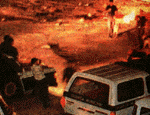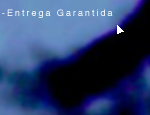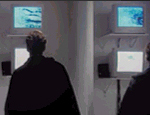![]()
IO_dencies
Sao Paulo Urbanism in exploding mega cities with high social inequalities
like Sao Paulo means that city space is delimited and planned only for
about one third of the inhabitants, the rest of the people stays outside
the walls of the capitalized space. Urbanism means the building of walls
that protect the rich city from the 70% of poor, illegal settlements.
In our studies we found clear needs for relevant forms of agency which
are able to deal with the complex processes of urban exclusions. These
forms of agency don't have to deal so much with the re-articulation of
territory, but they have to invent and produce existential interfaces
which enable in a more and more disappearing public environment in order
to avoid political, economical and cultural isolation. Some examples of
material in the Sao Paulo cartographies: the mythical role of technologies
for immigrants of the north of Brazil , interviews with people of favelas
on self organized job markets and parter-economies, the regulation of
the real estate market by law, historic artistic views on the city, etc.
![]()
1997 - 1999
krcf in Zusammenarbeit
mit Detlev Schwabe
Zentrum für Kunst und Medientechnologie Karsruhe,

in the context of escape | esprit long term research project 25377
Goethe Institut São Paulo, 1998
und: Haus der Kulturen der Welt Berlin V2, Ars Electronica, Lehmbruck Museum, Academy of Media Arts Cologne
Technical concept & application software development: Andreas Schiffler and Detlev Schwabe,ZKM Audio application development: Kr+cF
Urban editors: Fabio Duarte, Artur Lara, Sandro Canavezzi, Polise de Marchi, Renato Cymbalista, Keila Costa, Maria Elvira, Marcos Godoi, Maur'cio Ribeiro da Silva, Reinaldo de Jesus Consoli
São Paulo 2004:
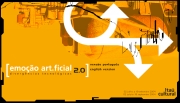
Bilbao 2004:

Hongkong 2003:
Galeria Itau São Paulo 1998:

DEAF Rotterdam 98:
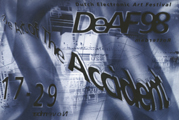
with a related workshop:

netcondition ZKM Karlsruhe 99:
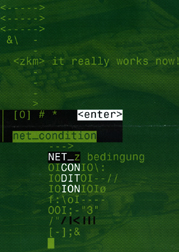
Ars Electronica Linz 98:

